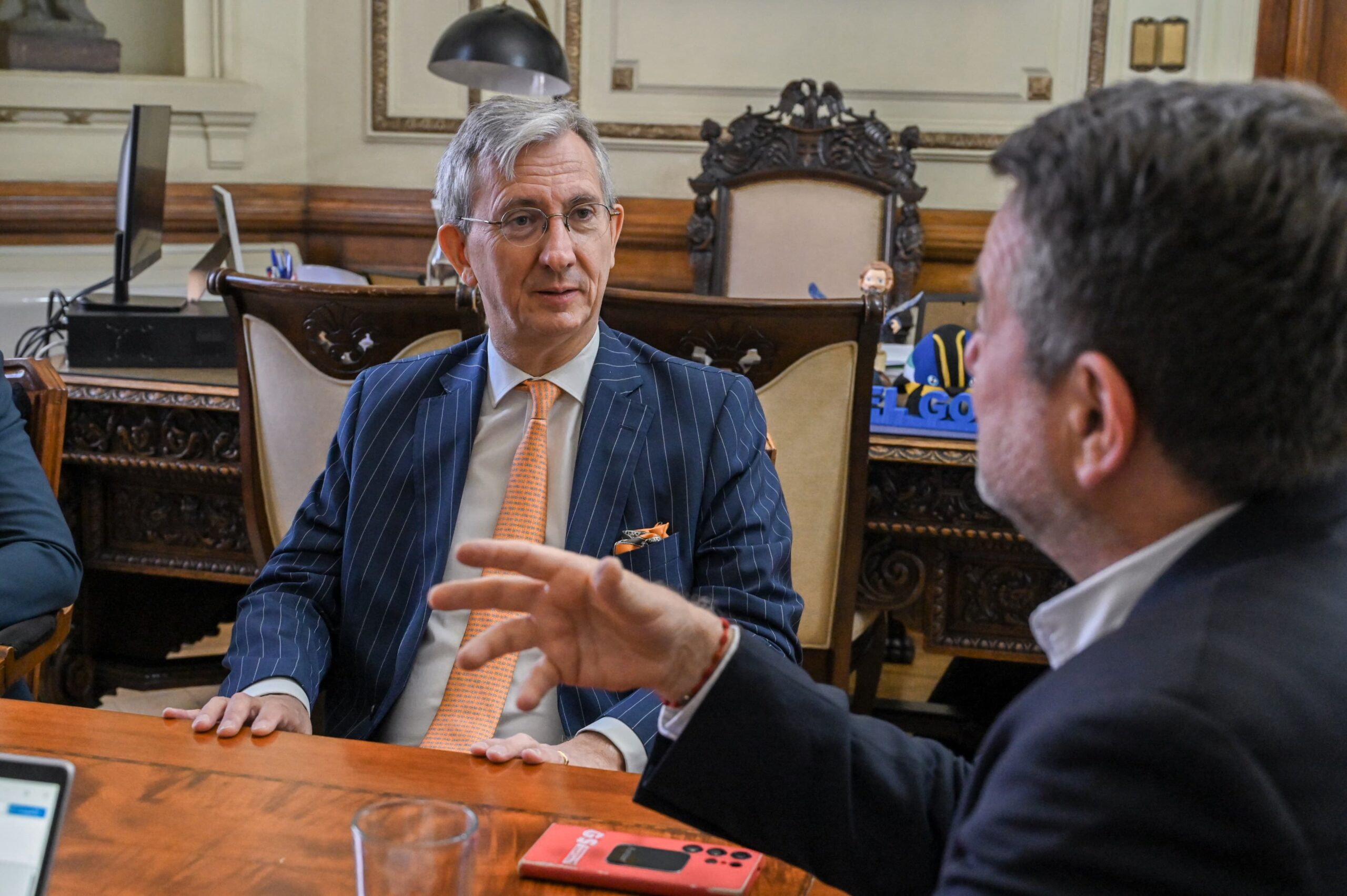
The diplomat, who took office in June 2024, stresses the advances in renewable energies, scientific collaboration and joint projects in Antarctica.
On the occasion of France’s National Day, which is celebrated every July 14, the French ambassador to Chile, Cyrille Rogeau, spoke to El Desconcierto about the main axes of bilateral cooperation between the two countries.
What is the relationship between France and Chile regarding renewable energies? What are the most important projects?
Chile is a strategic partner for France in Latin America, as evidenced by the large presence of French companies in the renewable energy sector, such as Engie, EDF and TotalEnergies to name the largest, but also SMEs such as CVE, Akuo Energy or Langa International. We share the same climate ambitions with Chile, and we maintain close cooperation on energy transition and the development of clean energy.
Engie and EDF, the fourth and fifth largest energy producers in Chile, are carrying out large-scale projects. Last year, Engie commissioned the BESS Coya site in the Antofagasta region, the largest battery plant in Latin America. This project will make it possible to meet one of the main energy challenges facing the Chilean electricity system, namely the storage of the energy generated. Another emblematic example of the country’s commitment to the energy transition is EDF’s CEME 1 solar plant, which is the largest in the country.
French companies are also stepping up their investments in the production of green H2 and its derivatives. TotalEnergies and EDF announced investments of US$15 million and US$10 million in the Magallanes region for the production of low-carbon hydrogen and the export of ammonia, with applications in the transport sector or green mining.
Chile is one of the priority countries for French investments. Which relevant agreements in technological innovation can you mention?
The presence of French companies in Chile is not limited to investments by large groups; French SMEs are also very dynamic in the country. Thanks to French public funds, a total of 2.4 million euros has been injected over three years to enable the deployment of innovative solutions in the Chilean energy and mining sector.
The Micr’eau firm installed hydrogen-powered generators in Enami’s mines in the Antofagasta region. The company Ecosun Innovation inaugurated an autonomous photovoltaic field at the Technical High School on Easter Island. These are solutions promoted by French SMEs and aimed at the sustainable development of isolated places.
There are numerous bilateral agreements to strengthen technological innovation that contribute to structure and strengthen this collaboration, which is also supported by the important presence of the CNRS (Centre National de Recherche Scientifique) in Chile, through several laboratories and international projects in areas such as mathematics, astronomy and marine biology. Chile also explains the presence of Inria Chile, the only international center of Inria (French National Institute for Research in Science and Digital Technologies), established in Chile since 2012.
For instance, the Eureka Network Projects scheme made it possible to launch a call for projects between the two countries to promote collaborative R&D initiatives with strong commercial potential. Priority was given to projects related to green technologies.
Finally, Chilean imports of wood, paper and cardboard amounted to some 32 million euros in 2024, representing 2.5% of the total, and are mainly composed of pulp.
Regarding strategic orientations between Chile and France, what can you tell us about the decarbonization of the economy and the development of the relationship focused on renewable hydrogen and lithium?
Chile and France are aligned to lead the way towards a decarbonized economy, driven by technological innovation. Green hydrogen has positioned itself as a key tool in industrial decarbonization for sites where electrification is not possible.
We have an institutional dialogue on this subject through a French-Chilean working group to address the development of green hydrogen, which has allowed us to develop a very important cooperation around the training of Chilean trainers.
In June, six Chilean teachers specialized in electricity from industrial institutes in the Magallanes region received intensive theoretical and practical training in France. The program was financed by five French companies established in Chile: TotalEnergies, ENGIE, EDF, Airbus and BNP Paribas. The next edition of Hyvolution Chile in September 2025 and the announced large French presence promise to continue with similar initiatives.
Source: El Desconcierto.